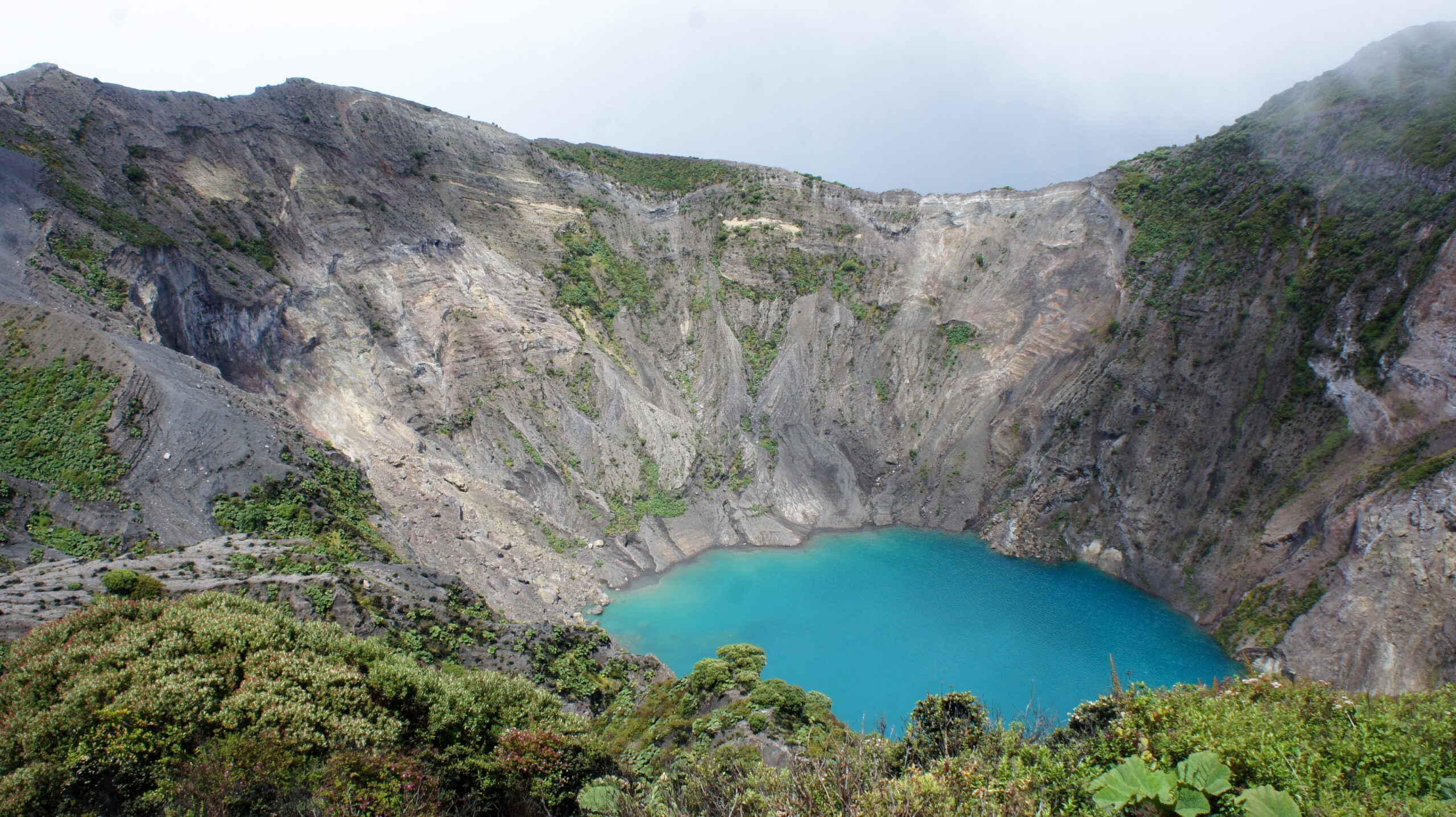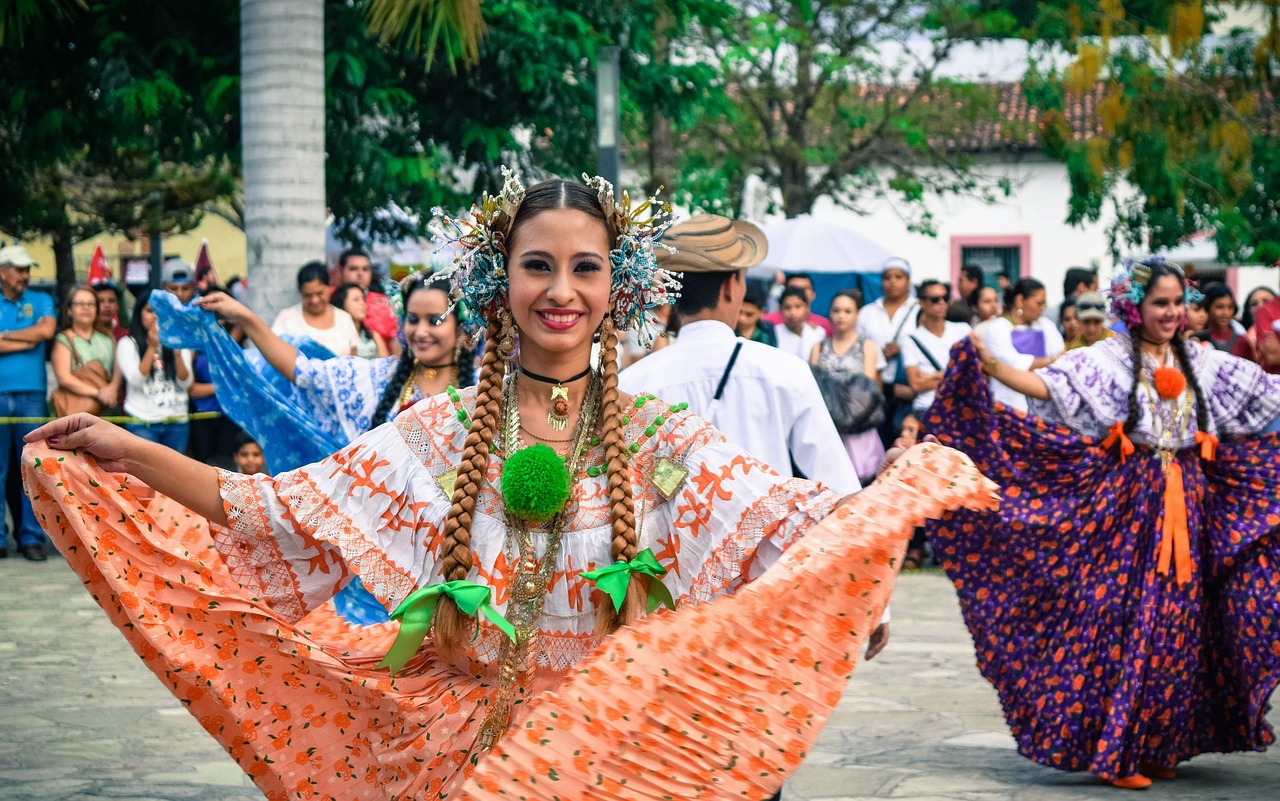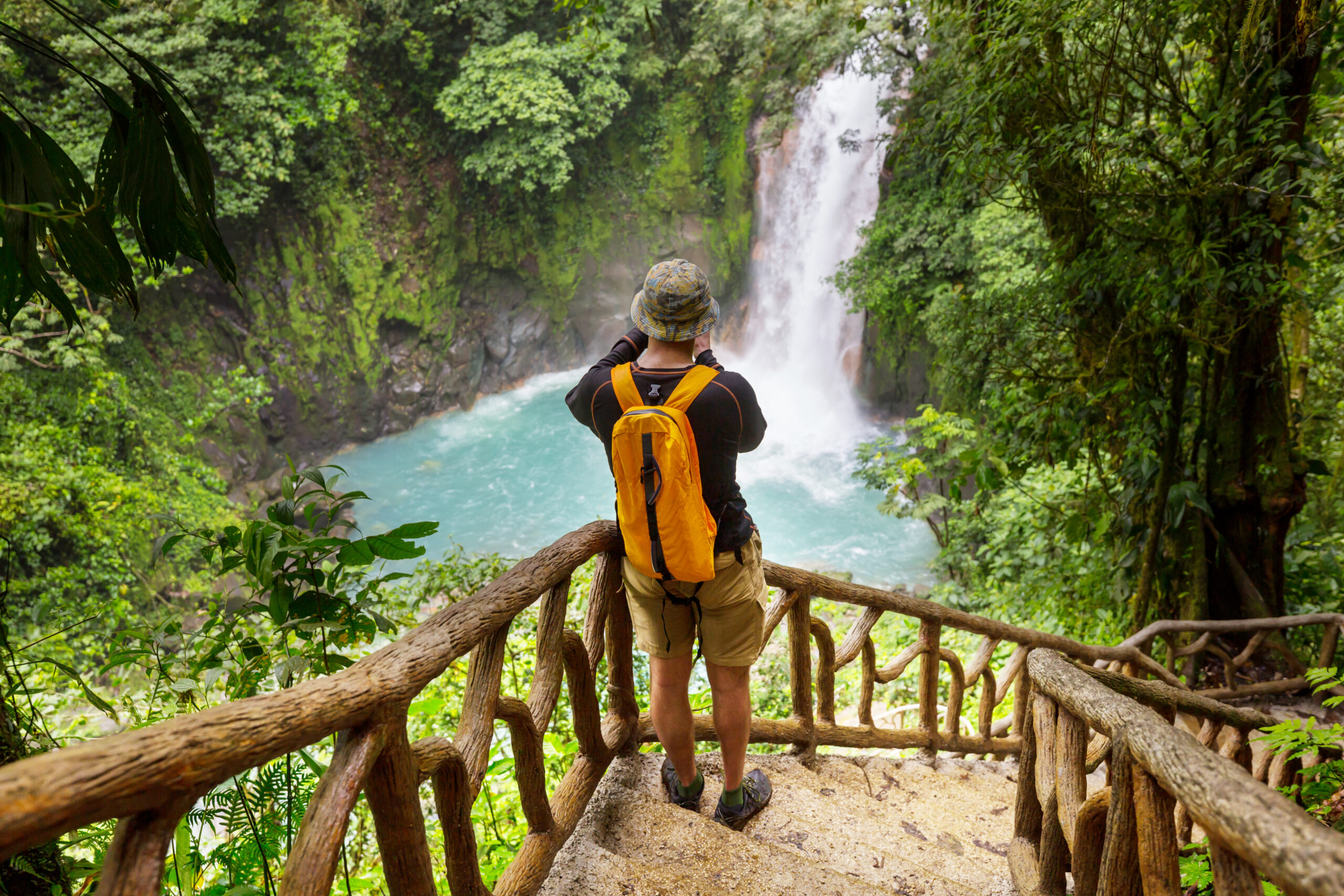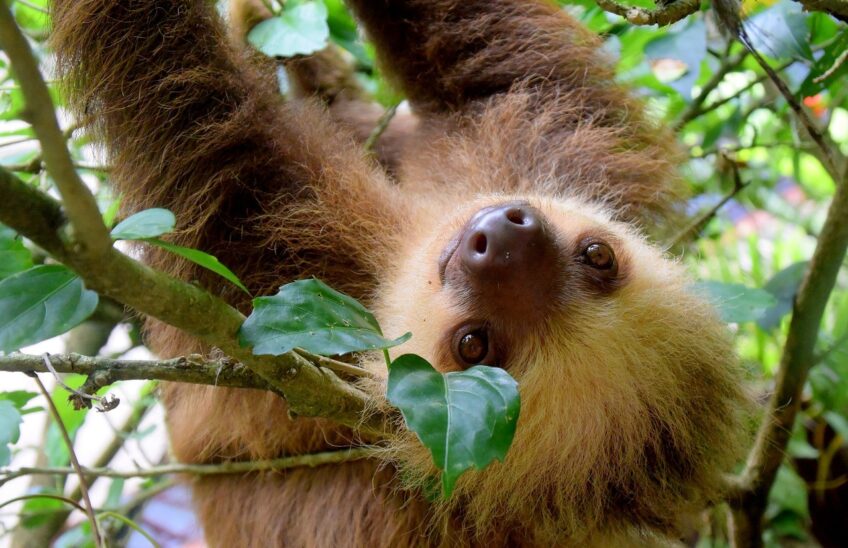Teach English in Costa Rica
Calling all nature lovers! Teaching English in Costa Rica combines the allure of the picturesque Central American landscapes with the rewarding experience of imparting language skills to eager learners. Nestled between the Pacific Ocean and the Caribbean Sea, Costa Rica’s lush rainforests, diverse wildlife, and warm, welcoming culture make it an enticing destination for both travelers and ESL teachers. Aspiring to teach English in this enchanting country opens doors to not only share English but also immerse yourself in a vibrant culture, fostering cross-cultural connections and personal growth.
Popular Cities for ESL Teachers

Hiking in green tropical forrest, Costa Rica
San José
As the capital and largest city of Costa Rica, San José is a hub for educational institutions, language schools, and job opportunities for English teachers. It has a vibrant cultural scene, a diverse population, and many language schools where you can find teaching positions. San José is also well-connected, making it a convenient base for exploring other parts of the country.
National Theater of Costa Rica: Visit this iconic cultural institution, known for its stunning architecture and hosting various performances, including opera, ballet, and classical music concerts.
Jade Museum (Museo del Jade): Explore one of the world’s largest collections of pre-Columbian jade artifacts, providing valuable insights into Costa Rica’s indigenous history and culture.
Mercado Central: Immerse yourself in the local culture by browsing the stalls at the Central Market. Try traditional Costa Rican dishes, shop for souvenirs, and experience the lively atmosphere of this bustling market.

Beautiful Pacific Ocean coastal beach in Costa Rica
Heredia
Located just a short distance from San José, Heredia is known for its pleasant climate and charming, laid-back atmosphere. It hosts several universities and language schools, making it a great place to find teaching opportunities. The city’s proximity to the capital allows for easy access to a range of cultural and recreational activities.
INBioparque: Discover the wonders of Costa Rica’s biodiversity at the INBioparque, an interactive park that features various ecosystems, gardens, and educational exhibits.
Heredia Central Park (Parque Central): Relax in this beautiful park, surrounded by historic architecture and local cafes. It’s an ideal spot to people-watch and enjoy a leisurely afternoon.
Braulio Carrillo National Park: Explore the lush rainforests and diverse wildlife of this nearby national park, offering hiking trails, waterfalls, and opportunities for nature enthusiasts and outdoor adventurers.

Volcano crater, Costa Rica
Alajuela
Alajuela, another city in the Greater Metropolitan Area, is a popular choice for English teachers. It’s known for its friendly community, affordability, and proximity to the Juan Santamaría International Airport, making it a convenient location for those who want to explore the country. Alajuela offers various language schools and educational institutions where you can teach English.
La Paz Waterfall Gardens: Visit this nature park and wildlife sanctuary, which features a series of stunning waterfalls, a butterfly garden, hummingbird garden, and animal exhibits, offering a chance to see Costa Rica’s rich biodiversity up close.
Arenal Volcano: While technically not in Alajuela, the Arenal Volcano is within a reasonable distance. Enjoy hot springs, hiking, and volcano viewing, all set against the backdrop of this iconic and active volcano.
Zarcero Park and Topiary Garden (Parque de Zarcero): Explore the whimsical topiary garden in Zarcero, a small town near Alajuela. The park features meticulously manicured bushes and shrubs shaped into various forms, creating a unique and picturesque setting.

Prawn and Salad Ceviche
Food
Costa Rican cuisine is a vibrant fusion of tropical ingredients and Spanish influences, characterized by the use of staples like rice and black beans in various dishes. The cuisine celebrates fresh, locally sourced ingredients and offers a harmonious blend of flavors, from zesty ceviche to hearty casados, reflecting the nation’s rich culinary diversity.
Gallo Pinto: A beloved Costa Rican staple, Gallo Pinto combines rice and black beans, sautéed with onions, bell peppers, and a hint of Salsa Lizano, creating a savory and slightly spicy breakfast dish enjoyed throughout the country.
Casado: This traditional “married” plate offers a complete meal experience, typically featuring a choice of protein, such as grilled chicken or fish, alongside sides of rice, black beans, fried plantains, and a fresh salad.
Ceviche: Costa Rican ceviche showcases the freshest seafood, often tilapia or shrimp, marinated in lime or sour orange juice and mixed with red onion, cilantro, and bell peppers, delivering a burst of tangy and refreshing flavors.
Tamales: Tamales in Costa Rica are wrapped in banana leaves and filled with a mixture of seasoned rice and various fillings, such as chicken, pork, or vegetables, then steamed to perfection, making them a cherished part of holiday traditions.
Chifrijo: This delectable bar snack and favorite among locals features layers of rice and black beans topped with seasoned ground pork, fresh pico de gallo, and avocado, providing a satisfying blend of textures and tastes in every bite.

Traditional Costa Rican Dance
Culture
These unique aspects of Costa Rican culture reflect a society deeply connected to its environment, its values of happiness and education, and its welcoming and diverse community, all of which make it a remarkable and intriguing destination. Here are five unique aspects of the Costa Rican people and their culture:
Pura Vida Philosophy: “Pura Vida” is more than just a phrase; it’s a way of life in Costa Rica. It translates to “pure life” and embodies the country’s laid-back, optimistic, and stress-free approach to living. Costa Ricans prioritize happiness, simplicity, and a strong connection to nature.
Strong Emphasis on Education: Costa Rica places a high value on education, with a well-developed public school system and a high literacy rate. The country has no army and instead invests in education and healthcare, fostering a culture of intellectual curiosity and innovation.
Biodiversity Conservation: Known for its rich biodiversity, Costa Ricans take their role as environmental stewards seriously. The nation has made significant strides in preserving its natural resources, with a quarter of the land protected in national parks and reserves, showcasing their commitment to eco-conscious living.
Warm and Welcoming Hospitality: Ticos, as Costa Ricans are affectionately known, are renowned for their warm and friendly nature. Visitors often experience genuine hospitality and a willingness to help, making the country a welcoming destination for travelers from around the world.
Cultural Diversity: Despite being a relatively small nation, Costa Rica is home to a diverse range of ethnicities, including indigenous groups, Afro-Caribbean communities, and Spanish descendants. This cultural diversity has given rise to a rich tapestry of traditions, music, and folklore, all of which contribute to the nation’s vibrant cultural heritage.
Qualifications
An internationally recognised TESOL Certificate will be required to teach English in Costa Rica.
Visa
To work as an English teacher in Costa Rica, you will need to have a valid work visa. Most schools will help you obtain the correct visa and guide you through the process with visa assistance. Some students will originally enter on a 3-month holiday visa. The process of obtaining a work visa can vary depending on your country of origin, but generally, you will need to provide proof of your qualifications, a valid passport, and a criminal background check. It is important to check the specific requirements for each country and your language school for up-to-date advice.

Visit waterfalls in Costa Rica
Pura Vida!
Teaching English in Costa Rica is an extraordinary opportunity to combine the joy of imparting language skills with the splendors of a breathtaking natural landscape and a vibrant, welcoming culture. The “Pura Vida” way of life, Costa Rica’s commitment to education, and its unparalleled biodiversity make it a unique and rewarding destination for educators. By embarking on this journey, you not only get to share your knowledge but also immerse yourself in an enchanting culture, foster lifelong cross-cultural connections, and embark on a personal adventure like no other. Costa Rica awaits, offering a truly enriching and transformative experience for those passionate about teaching and exploring.


























